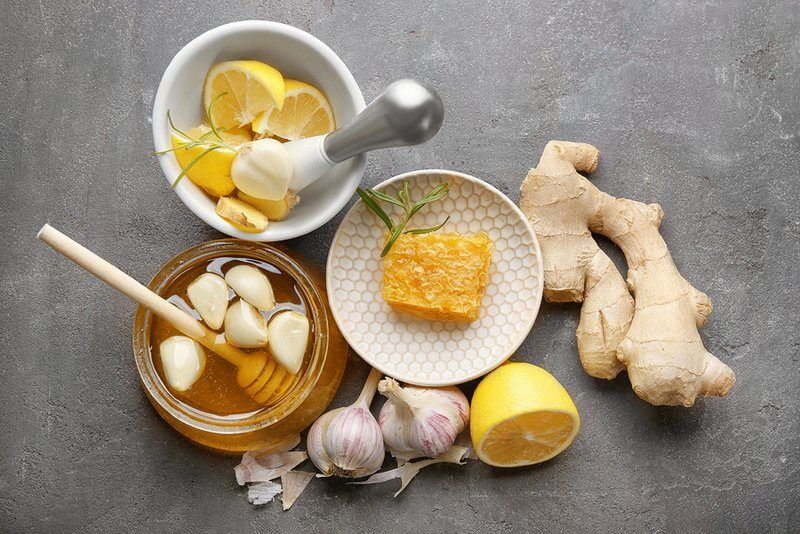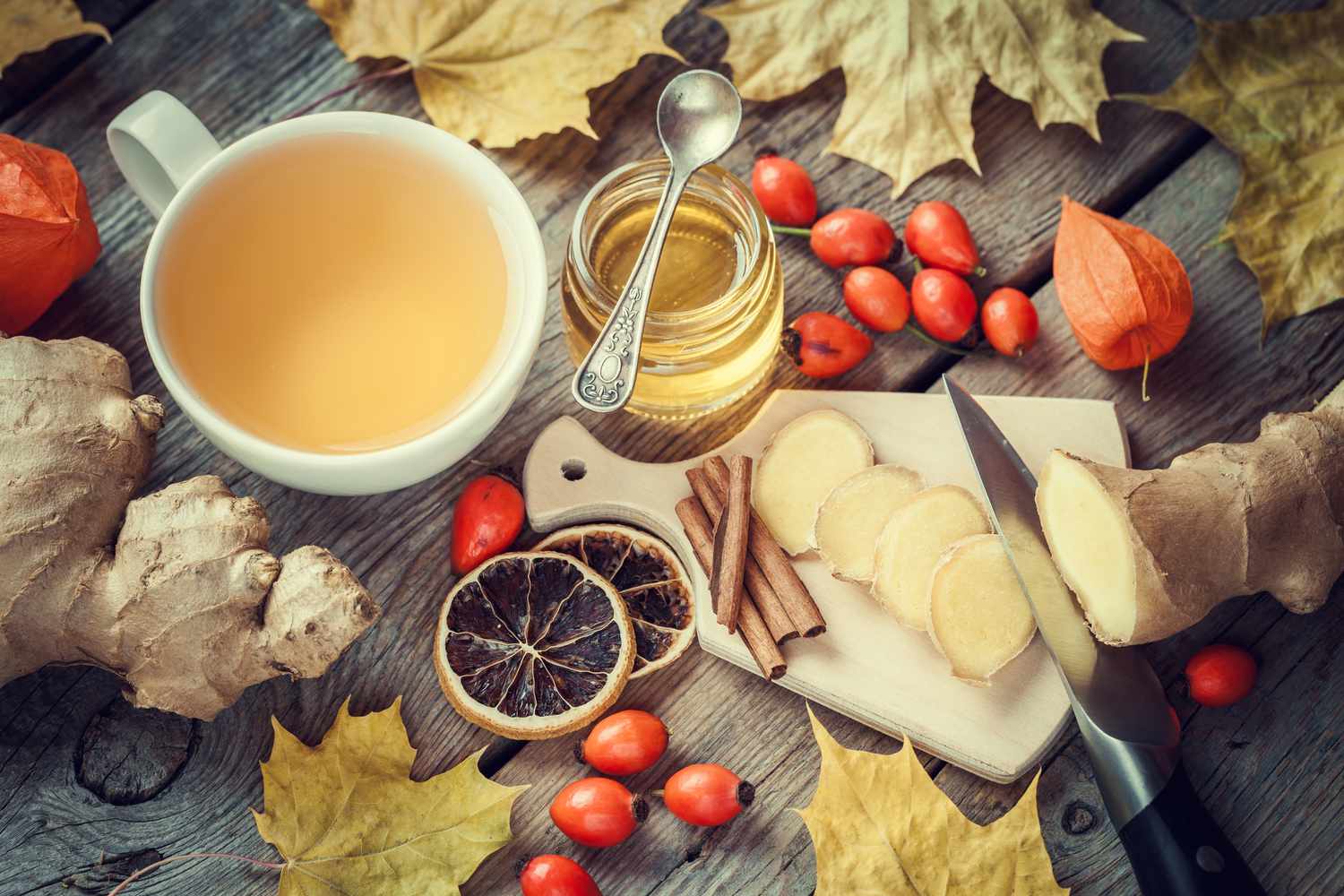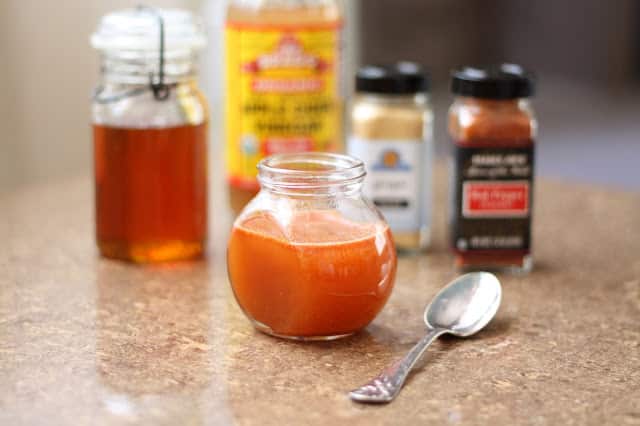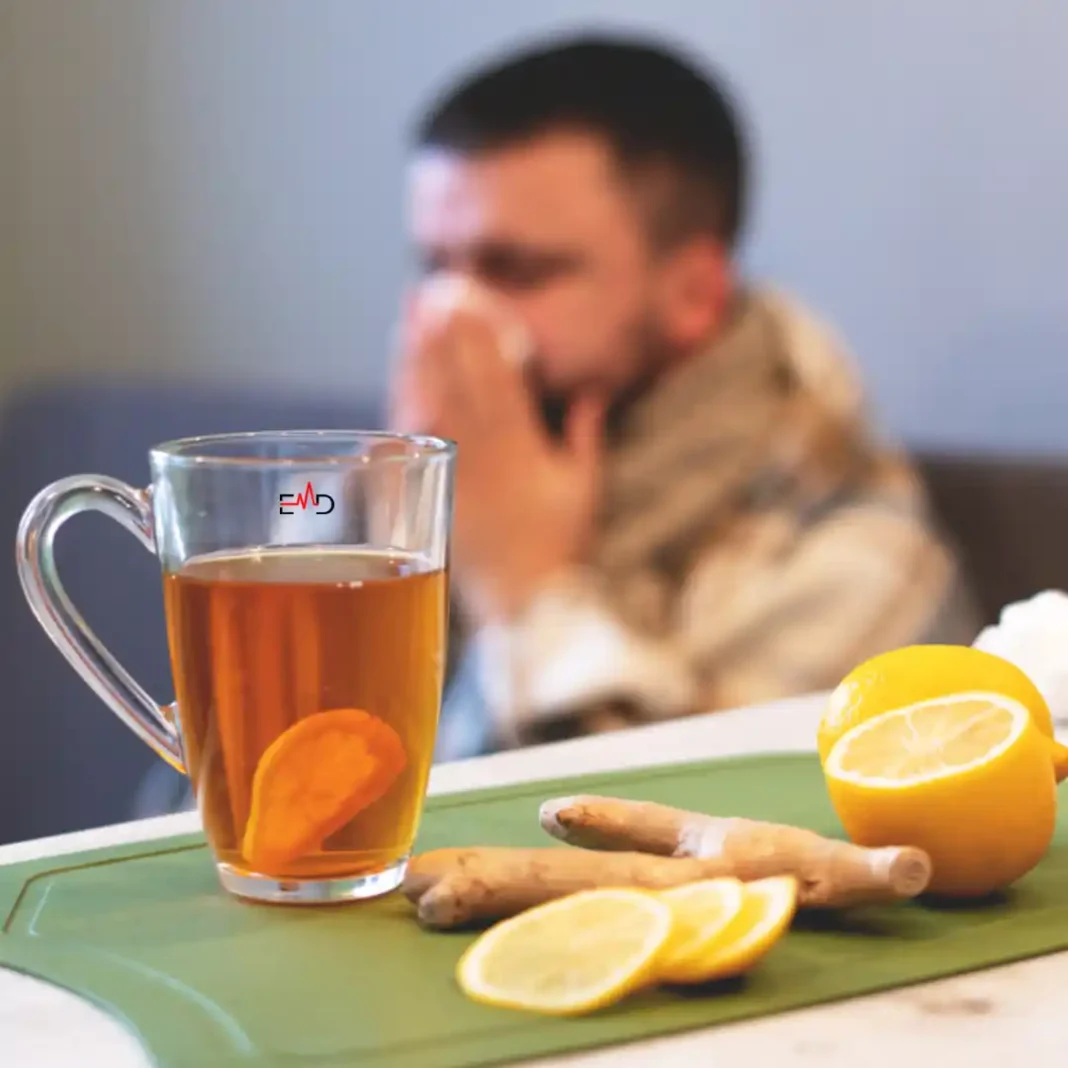Exercise Daily – Cold and flu season is upon us, and with it comes sore throats, sniffles, and the dreaded congestion that leaves us feeling miserable. While there’s no magic cure, there are effective homemade remedies that can ease your symptoms and support your body’s natural defenses. Let’s dive into tried-and-true ways to fight off that cold right from your kitchen.
Homemade remedies for colds offer numerous benefits for athletes, who often push their bodies to the limit and are more susceptible to infections due to intense training schedules. Natural remedies such as honey and lemon tea can soothe sore throats and provide a comforting boost. At the same time, ginger and garlic possess anti-inflammatory and antiviral properties that help the body combat the common cold.
Incorporating these remedies into their routine allows athletes to manage symptoms effectively without the risk of side effects associated with over-the-counter medications, which can sometimes interfere with their performance or training regimen. Additionally, the use of herbal teas and broths can aid in hydration and provide essential nutrients, supporting overall recovery and maintaining optimal physical condition.

Understanding the Common Cold
The common cold is a viral infection of the nose and throat, primarily caused by rhinoviruses. While it’s usually harmless, it brings a suite of symptoms that can make us feel less than our best. Colds spread easily, especially in cooler months when people tend to stay indoors and are in closer contact with one another. Symptoms typically include a runny or stuffy nose, sore throat, cough, congestion, sneezing, and mild fatigue. In some cases, individuals may also experience headaches, body aches, and a low-grade fever.
Understanding the nature of a cold is crucial for effectively managing and alleviating its symptoms. Unlike the flu, which can lead to severe complications, the common cold is generally self-limiting, meaning it resolves on its own without the need for medical intervention. However, recognizing the symptoms early can help you take proactive steps to ease discomfort and potentially shorten the duration of the illness.
How Colds Spread
Colds are highly contagious and can spread through airborne droplets when an infected person coughs or sneezes. Additionally, touching surfaces contaminated with the virus and then touching your face can lead to infection. This mode of transmission explains why colds are more prevalent in environments like schools, offices, and public transportation during the colder months.
Duration and Severity
A typical cold lasts about 7 to 10 days, with the most severe symptoms occurring in the first few days. While most people recover without complications, certain populations—such as young children, the elderly, and individuals with compromised immune systems—may experience more severe symptoms or secondary infections like sinusitis or bronchitis.
Why Home Remedies Work for Colds
There’s no cure for the common cold, but home remedies have been trusted for generations to provide relief. Why? Because many of these remedies contain natural anti-inflammatory and immune-boosting properties that can help alleviate symptoms and support recovery.
The Science Behind Home Remedies
Home remedies often incorporate ingredients that have been scientifically proven to offer health benefits. For instance, honey has antibacterial properties, while ginger contains compounds that reduce inflammation. These natural elements work synergistically with your body’s immune system to fight off the viral invaders causing your cold.
Holistic Approach to Healing
Unlike over-the-counter (OTC) medications that typically target specific symptoms, home remedies often adopt a holistic approach. They aim to support overall health and well-being, addressing multiple aspects of the body’s response to infection. This can lead to a more comprehensive and sustained recovery, reducing the likelihood of lingering symptoms or secondary issues.
Integrating Home Remedies into Daily Life
Incorporating home remedies into your daily routine during a cold can be simple and enjoyable. From sipping on herbal teas to adding immune-boosting foods to your meals, these practices not only help alleviate symptoms but also promote a sense of comfort and well-being during an uncomfortable time.
Beyond symptom relief, homemade cold remedies contribute to the long-term health and resilience of athletes by strengthening the immune system. Ingredients like turmeric, rich in antioxidants, and echinacea, known for its immune-boosting effects, can help reduce the duration and severity of colds, enabling athletes to return to their training more quickly. Moreover, these natural approaches promote a holistic sense of well-being, aligning with the balanced lifestyle many athletes strive for.
By relying on homemade remedies, athletes can maintain their health naturally, ensuring that they remain at peak performance levels while minimizing downtime caused by illness. This proactive approach not only enhances their immediate recovery but also builds a stronger foundation for sustained athletic excellence.

Benefits of Using Natural Ingredients
Natural ingredients found in home remedies can soothe inflammation, hydrate, and provide vitamins essential for immune health. These ingredients don’t just mask symptoms—they work with your body to restore balance.
Anti-Inflammatory Properties
Many natural remedies contain anti-inflammatory compounds that help reduce swelling and irritation in the respiratory tract. For example, turmeric, a common spice used in home remedies, contains curcumin, a powerful anti-inflammatory agent that can help alleviate sinus pressure and sore throat pain.
Immune System Support
Ingredients like garlic and elderberry have been shown to enhance the immune system’s ability to fight off infections. Garlic contains allicin, which has antiviral and antibacterial properties, while elderberry is rich in antioxidants that help protect cells from damage and support overall immune function.
Hydration and Electrolyte Balance
Maintaining proper hydration is crucial when battling a cold. Natural remedies often emphasize the importance of fluids, whether through water, herbal teas, or broths. These fluids not only help thin mucus, making it easier to expel, but also ensure that your body remains hydrated, supporting all physiological processes essential for recovery.
Nutrient-Rich Ingredients
Many home remedies incorporate nutrient-dense ingredients that provide essential vitamins and minerals. For instance, adding lemon to your tea can supply vitamin C, which is vital for immune health, while adding honey offers a quick source of energy and additional immune support.
Essential Home Remedies for Cold and Flu
Here’s a list of simple, effective remedies you can try at home to ease the discomfort of cold and flu symptoms. These remedies focus on hydration, soothing the throat, easing congestion, and boosting overall immunity.
Hydration: The Key to Recovery
Staying hydrated is crucial when fighting a cold. Fluids help thin mucus, making it easier to expel and keep your body functioning at its best.
Importance of Staying Hydrated
Hydration plays a pivotal role in maintaining your body’s natural defenses. When you’re dehydrated, mucus becomes thicker and more difficult to clear, exacerbating congestion and making breathing more uncomfortable. Additionally, adequate fluid intake helps regulate body temperature, ensuring that your immune system operates efficiently.
Best Fluids to Consume
- Water: The simplest and most effective way to stay hydrated.
- Herbal Teas: Chamomile, peppermint, and ginger teas not only hydrate but also offer additional soothing benefits.
- Broth-Based Soups: Chicken or vegetable broth can provide both hydration and essential nutrients.
- Electrolyte Solutions: For those experiencing excessive sweating or dehydration, electrolyte-rich drinks can help restore balance.
Vitamin C Boosts Immunity
Vitamin C is known for boosting the immune system. Try adding citrus fruits, bell peppers, and leafy greens to your diet to give your body the fuel it needs to fight off infection.
Sources of Vitamin C
- Citrus Fruits: Oranges, lemons, limes, and grapefruits are excellent sources.
- Bell Peppers: Both red and green bell peppers are rich in vitamin C.
- Leafy Greens: Spinach, kale, and broccoli not only provide vitamin C but also other essential nutrients.
- Berries: Strawberries, blueberries, and raspberries offer a sweet way to increase your vitamin C intake.
How Vitamin C Works
Vitamin C stimulates the production and function of white blood cells, which are crucial for fighting infections. It also acts as an antioxidant, protecting cells from damage caused by free radicals, and enhances the skin’s barrier function, making it harder for pathogens to enter the body.
Honey and Ginger for Soothing Relief
Honey and ginger are a powerful duo for soothing sore throats and reducing cough. Honey coats the throat, while ginger has anti-inflammatory properties.
Honey: Nature’s Antibiotic
Honey is a natural antibacterial and can help reduce throat pain. It also acts as a cough suppressant by coating the throat and reducing irritation.
How to Use Honey
- Straight Spoonful: Take a spoonful of honey on its own for quick relief.
- Honey and Tea: Stir honey into warm herbal teas for a soothing drink.
- Honey and Lemon: Combine honey with lemon juice in warm water for added vitamin C and a pleasant flavor.
Ginger’s Anti-Inflammatory Benefits
Ginger has compounds that reduce inflammation and relieve nausea. Its warming properties also help increase circulation, promoting healing.
How to Use Ginger
- Ginger Tea: Add fresh ginger slices to hot water and steep for several minutes.
- Ginger and Honey Mixture: Combine ginger juice with honey for a potent throat soother.
- Ginger in Meals: Incorporate ginger into soups, stews, and other dishes to reap its benefits throughout the day.
Salt Water Gargle for Sore Throat
A saltwater gargle can reduce throat irritation. Salt draws out excess moisture, helping to reduce swelling and pain in the throat area.
Benefits of Salt Water Gargling
Gargling with salt water creates a hypertonic environment that can help dry out swollen tissues in the throat, reducing inflammation and killing bacteria. This simple remedy can provide significant relief from sore throat discomfort.
How Often to Gargle
Gargling with salt water can be done several times a day, especially before meals and bedtime, to maintain throat comfort and hygiene.
Steam Therapy to Clear Nasal Passages
Inhaling steam is a quick way to relieve nasal congestion. The warm steam opens nasal passages, making it easier to breathe.
How Steam Therapy Works
Steam helps moisten the nasal passages, thinning mucus and making it easier to expel. This can significantly reduce congestion and improve airflow, providing immediate relief from stuffiness.
How to Perform Steam Therapy
- Boil Water: Bring a pot of water to a boil and then remove it from the heat.
- Add Essential Oils: Add a few drops of eucalyptus or peppermint oil for enhanced benefits.
- Inhale the Steam: Place a towel over your head and lean over the pot, inhaling deeply for 10-15 minutes.
Adding Eucalyptus Oil
Adding a few drops of eucalyptus oil to your steam inhalation can further clear nasal passages. Eucalyptus acts as a decongestant, making breathing easier and providing a refreshing aroma that can help reduce the sensation of congestion.
Chicken Soup: More Than Comfort Food
Chicken soup isn’t just a comforting meal—it’s also packed with nutrients that help reduce inflammation and keep you hydrated. Plus, the warmth soothes a sore throat and eases congestion.
Nutritional Benefits of Chicken Soup
Chicken soup contains protein from the chicken, vitamins from the vegetables, and electrolytes from the broth. These nutrients support the immune system and provide the body with the energy needed to fight off the infection.
How to Make an Effective Chicken Soup
- Use Bone Broth: Rich in minerals and gelatin, bone broth provides additional health benefits.
- Add Vegetables: Carrots, celery, onions, and garlic add vitamins and enhance flavor.
- Include Herbs and Spices: Ingredients like thyme, parsley, and turmeric can boost the soup’s anti-inflammatory properties.
- Simmer Slowly: Cooking the soup slowly allows flavors to meld and nutrients to be fully extracted.
Additional Home Remedies to Consider
Beyond the essentials, there are several other home remedies that can provide relief from cold symptoms.
Herbal Teas
Herbal teas such as chamomile, peppermint, and licorice root can offer various benefits, from soothing sore throats to relieving headaches. Adding honey and lemon to these teas can enhance their effectiveness and provide additional comfort.
Garlic
Garlic is renowned for its immune-boosting properties. Consuming raw garlic or adding it to your meals can help your body fight off the cold virus more effectively.
Apple Cider Vinegar
Apple cider vinegar is believed to have antimicrobial properties. Mixing a tablespoon with warm water and honey can create a soothing drink that may help alleviate symptoms.

Over-the-Counter Options vs. Natural Remedies
Sometimes, symptoms require a little extra help from over-the-counter (OTC) medications. While OTC options can reduce pain and congestion, natural remedies focus on supporting overall health and reducing recovery time.
When OTC Medications May Be Necessary
For symptoms like severe pain, high fever, or persistent coughing, OTC medications may provide immediate relief. Pain relievers such as ibuprofen or acetaminophen can reduce fever and alleviate body aches. Decongestants and antihistamines can help clear nasal passages and reduce sneezing and runny noses. However, it’s essential to use these medications as directed and consult a healthcare professional if symptoms worsen or persist beyond a typical duration.
Common OTC Medications and Their Uses
- Pain Relievers: Ibuprofen (Advil) and acetaminophen (Tylenol) for reducing fever and alleviating aches.
- Decongestants: Pseudoephedrine (Sudafed) to relieve nasal congestion.
- Antihistamines: Diphenhydramine (Benadryl) or loratadine (Claritin) to reduce sneezing and runny noses.
- Cough Suppressants: Dextromethorphan (Robitussin) to control persistent coughing.
How Natural Remedies Support Your Body
Natural remedies work by helping your body fight off the infection rather than simply masking symptoms. This can lead to a more thorough recovery and fewer side effects. By supporting the immune system, reducing inflammation, and promoting hydration, these remedies address the root causes of cold symptoms, facilitating a quicker and more effective recovery process.
Synergistic Effects
Combining multiple natural remedies can have synergistic effects, enhancing their overall effectiveness. For example, drinking ginger tea with honey can provide both anti-inflammatory benefits and throat-soothing properties, addressing multiple symptoms simultaneously.
Additional Tips to Boost Recovery
Aside from these remedies, consider some lifestyle tips to speed up your recovery. These practices can complement home remedies and provide a more robust defense against the cold virus.
Getting Enough Rest
Your body needs rest to fight off infection. Aim for seven to nine hours of sleep each night to help your immune system function optimally. Additionally, taking short naps during the day can provide extra support, allowing your body to allocate more energy toward healing.
Creating a Restful Environment
- Comfortable Bedding: Ensure your bed is comfortable and supportive.
- Quiet and Dark Room: Minimize noise and light to promote uninterrupted sleep.
- Temperature Control: Keep your room at a comfortable temperature to avoid overheating or getting too cold.
Eating Immune-Boosting Foods
Foods rich in antioxidants, like berries, nuts, and leafy greens, provide essential nutrients that keep your immune system strong. Incorporating these foods into your diet can enhance your body’s ability to fight off the cold virus.
Key Immune-Boosting Foods
- Berries: High in vitamins and antioxidants, berries like blueberries, strawberries, and raspberries help protect cells from damage.
- Nuts and Seeds: Almonds, walnuts, and sunflower seeds are excellent sources of vitamin E and zinc, both crucial for immune health.
- Leafy Greens: Spinach, kale, and Swiss chard are packed with vitamins A, C, and K, as well as minerals like iron and calcium.
- Garlic and Onions: These contain compounds that enhance immune function and possess antimicrobial properties.
- Yogurt: Rich in probiotics, yogurt supports gut health, which is closely linked to immune function.
Avoiding Cold-Spreading Habits
Simple practices like washing hands frequently and covering your mouth when sneezing can prevent the spread of cold to others. Additionally, avoiding close contact with infected individuals can reduce the risk of transmission.
Best Practices to Prevent Spread
- Hand Hygiene: Wash your hands regularly with soap and water for at least 20 seconds.
- Use Hand Sanitizer: When soap and water are unavailable, use an alcohol-based hand sanitizer.
- Cover Mouth and Nose: Use a tissue or the inside of your elbow to cover your mouth and nose when coughing or sneezing.
- Disinfect Surfaces: Regularly clean and disinfect commonly touched surfaces like doorknobs, light switches, and mobile devices.
- Avoid Sharing Personal Items: Do not share utensils, towels, or other personal items with others.
Maintaining a Positive Mindset
Mental health plays a significant role in physical recovery. Maintaining a positive outlook and managing stress can enhance your immune response and speed up recovery.
Techniques to Stay Positive
- Mindfulness and Meditation: Practices like meditation can reduce stress and improve overall well-being.
- Stay Connected: Keeping in touch with friends and family, even if virtually, can provide emotional support.
- Engage in Light Activities: Reading, listening to music, or watching uplifting movies can keep your spirits high without overexerting yourself.

Final Thoughts
Ultimately, the best way to fight a cold is to listen to your body and give it what it needs. From staying hydrated to taking time to rest, these remedies can help ease your symptoms and support a quicker recovery. Remember that while home remedies can be highly effective, it’s essential to monitor your symptoms and seek medical attention if they worsen or do not improve within a reasonable timeframe.
FAQs – Fight a Cold with These Homemade Remedies
Q: How quickly do home remedies work for colds?
A: Home remedies can help ease symptoms within a day or two, but full recovery typically takes about a week. The effectiveness of remedies can vary based on the individual and the severity of the cold. Consistently using these remedies can support your body’s natural healing process and potentially shorten the duration of symptoms.
Q: Can I combine OTC medications with home remedies?
A: Generally, yes, you can combine OTC medications with home remedies. However, it’s important to consult a doctor or healthcare professional to avoid any unwanted interactions, especially if you are taking multiple medications or have underlying health conditions. Combining therapies can provide comprehensive symptom relief and support overall recovery.
Q: Is honey safe for young children?
A: Children under one year old should not consume honey due to the risk of botulism, a rare but serious form of food poisoning. For older children and adults, honey is generally safe and can be an effective remedy for soothing sore throats and reducing cough.
Q: What foods help boost immunity during a cold?
A: Foods rich in vitamin C, antioxidants, and zinc are excellent for boosting immunity during a cold. Examples include:
- Oranges and Other Citrus Fruits: High in vitamin C, which supports immune function.
- Nuts and Seeds: Provide zinc, which is essential for immune cell development.
- Leafy Greens: Packed with vitamins A, C, and K, as well as minerals like iron.
- Garlic and Onions: Contain compounds that enhance immune response.
- Yogurt: Rich in probiotics, supporting gut health and immunity.
Q: When should I see a doctor?
A: If symptoms worsen or last longer than two weeks, it’s best to consult a healthcare professional. Additionally, seek medical attention if you experience severe symptoms such as high fever, difficulty breathing, chest pain, persistent coughing, or signs of dehydration. Vulnerable populations, including the elderly, young children, and individuals with compromised immune systems, should seek medical advice promptly if they develop cold symptoms.
Q: Can essential oils help with cold symptoms?
A: Yes, certain essential oils like eucalyptus, peppermint, and tea tree oil can help alleviate cold symptoms. They can be used in steam inhalation, added to diffusers, or diluted and applied topically. These oils have properties that can reduce congestion, soothe sore throats, and provide a refreshing aroma that can enhance your overall sense of well-being.




